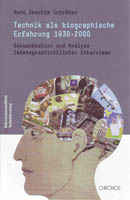In Telepolis (
5.7. 2005) rezensiert Mathias Bröckers ein Buch zur Technikgeschichte des New York Times Journalisten John Markoff, dass die Verbindungen zwischen PC-Entwicklung und us-amerikanischer Gegenkultur in den Mittelpunkt stellt:
Tune in, turn on, boot up
Wie die Gegenkultur der 60er Jahre zum Personal Computer führte – Ein Report aus der Frühgeschichte des Silicon Valley.
Kaum ein Kapitel der Technikgeschichte ist ausführlicher beschrieben worden als die Entstehung des Personal Computers. Die üblichen Abhandlungen darüber beginnen mit Steve Jobs, Steve Wozniak und dem ersten Apple-PC 1976, um sich dann, nach einem kurzen Rückblick auf den Altair-Computer (1974), der legendären First West Coast Computer Faire (1977), dem IBM-PC (1981) und allem, was folgte, zu widmen. Die etwas avancierteren Historien berichten dann vielleicht auch noch davon, dass Steve Jobs im "Palo Alto Research Center" (PARC) von Xerox, wo man am Büro der Zukunft herumtüftelte, die Ideen für den ersten "Mac" aufsaugte und umsetzte – um dann seinerseits von einem gewissen Bill Gates beklaut zu werden.
Begonnen freilich hat die Geschichte des PCs lange bevor diese geschäftstüchtigen Gründer und Entrepreneurs die Szene betraten – Ende der 50er Jahre im Umfeld der Stanford-Universität. Hier legten visionäre Forscher, Ingenieure und Programmierer die Wurzeln für die Entwicklung des PCs und des Internet und wurden zur Keimzelle für das, was sich auf der Halbinsel südlich von San Francisco dann zur Boomtown einer technologischen Revolution entwickelte: des Silicon Valley. Weiter im Text)

John Markoff: What the Dormouse Said: How the Sixties Counterculture Shaped the Personal Computerindustry. Viking Books, 2005, 336 Seiten, 25,95 US-Dollar.
Allerdings hat Herr Bröckers in seiner Rezension von Gnetwerker via
slashdot abgeschrieben:
"John Markoff of the New York Times has written a new book on the pre-history of the PC, and the convergence of that history with the 1960s drug culture and anti-Vietnam War movement in the Bay Area.
Most histories of the personal computer begin with Steve Jobs, Steve Wozniak, and Apple in 1976, but while hanging out at SAIL in the mid 1970s, and at the First West Coast Computer Faire in 1977, I heard highly attenuated versions of the folklore that Markoff has only now, after nearly 30 years, run to ground. Conventional histories of the PC make passing reference to the MITS Altair (1974) before going on the talk about the Apple, the IBM PC (1981) and what followed. The more sophisticated would conspiratorially tell the story of how Steve Jobs "stole the idea" for the Macintosh from Xerox's fabled Palo Alto Research Center (PARC) as they were "fumbling the future," and nearly everyone knew that Bill Gates then stole the ideas from Apple."
Der kritische Aspekt der Rezension sei hier auch noch nachgereicht:
"If the book has a problem, this is it. Markoff neither presents a first-person oral history nor is he able to tease a single central narrative thread out of this creative soup. He tells several interwoven stories, but there is so large a cast of characters that one must be a dedicated reader (or have a previous knowledge of some of the events described) to keep everything straight. Without a single narrative, the book returns several times to the start of a timeline, retracing it from another perspective, and after a while you feel the need for a map."
Vgl. auch das Interview mit Markoff Kathleen Melymuka in der Computerworld:
"Scholars and Barbarians. What the Dormouse Said... examines how the '60s counterculture shaped the PC industry":
Markoff talked with Kathleen Melymuka about the two very different philosophical approaches to information that divided the nascent industry at that time and still do today.kschoenberger - 6. Jul, 10:03


















